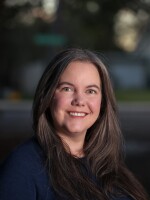Florida lawmakers are looking into what the state’s energy future should hold. Experts agree the state should have a diverse energy portfolio, but Regan McCarthy reports some disagree on how quickly the state should start shifting more of its energy dependence on to renewable sources.
Focusing the state’s energy efforts on renewable energy is a matter of national security—that’s according to Reamonn Soto, a marine serving in the reserves.
“The CIA and Department of Defense have deemed that our dependence on foreign oil is a threat to our national security. Where we’re spending 1-billion dollars per day on foreign oil, 40-percent of that is going directly to terrorist organizations”
Lt. General John Castellaw of the U.S. Marine Corps, joined Soto at a press conference to talk about the state’s energy polices. Castellaw says his goal is to ensure the safety and security of the nation.
“And let me explain that the United States Military is not emotional. They’re not into saving polar bears. What they’re into doing is providing security and defense for this great nation of ours.”
Castellaw says one of the best ways to do that is to reduce the country’s dependence on traditional energy sources like fuel. And Representative Michelle Rehwinkel Vasilinda, a Democrat from Tallahassee, says Florida is uniquely suited to produce renewable energy.
“The Florida brand also comes with solar, the climate to grow three crops of bio diesel, pockets of wind, tidal, wave and we are known for development and construction here in this state. And so let’s move ahead with what we know, but expand it. This is good for Florida’s economy, it’s good for national security—and Florida is all about national security that’s what we do in this state.”
Agriculture Commissioner Adam Putnam took over the state’s office of energy just last year. This is the commissioners first legislative session with the office under his purview. Putnam says diversifying the state’s energy portfolio is a priority for him. He says wants to encourage new sources of energy but also cautions against blindly following a fad.
“Policy makers ought to do everything they can to avoid picking winners and losers. I think we need to have a climate that encourages new industry, that encourages new job creation, that encourages expansion of existing industry and existing technology, but we ought to avoid specifically targeting a technology and saying, we think that Florida really ought to have beta max even though everybody is buying VHS.”
Putnam’s plan includes things like removing barriers that prevent the expansion of renewable energy and puts new guidelines for energy diversity in place for the Public Service Commission to consider when making decisions about a new source. Rehwinkel Vasilinda says Putnam is headed in the right direction, but she says she doesn’t think he’s taking a big enough first step.
“His heart is in the right place, I think he’s got what he needs to do, but it’s a very modest step.”
And Rehwinkel Vasilinda says taking baby steps, rather than making strides could be a mistake.
“I think we could really charge ahead and we are behind what other states are doing and I think we’re going to lose an edge that we could have. And frankly, with these out of work folks, we could put them back to work right now if we had the proper policies in place.”
A number of bills related to energy policy are working through the legislature. One, which is sponsored by Rehwinkel Vasilinda, would let local governments use part of a local option sales tax to encourage residents to make green energy improvements, like adding solar panels, on their homes. Meanwhile, some, but not all, of Putnam’s suggestions are moving forward in a committee bill.

